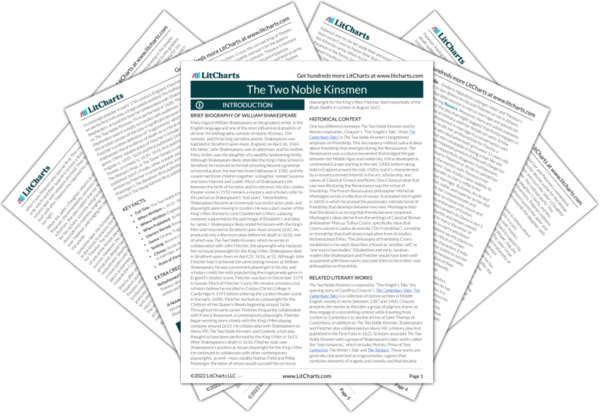When Palamon addresses Arcite to express his remorse that they "desire [things] which do cost us / The loss of our desire," he explicitly admits what a shame it was that they let their pursuit of Emilia destroy their friendship. Theseus notes that while it's tricky of Fortune (the gods) to end the cousins' story with a last-minute changeup wherein their fates are seemingly reversed, in the end, everything is how it should be because the gods have willed it to be that way. Theseus sees Arcite's accidental death as evidence of the gods having "become / The executioners," which effectively spares Theseus the burden of having to execute Palamon. Finally, Theseus addresses the gods directly, stating, "O you heavenly charmers." His remark "What things you make of us!" humbles humanity, alluding to how the gods will always put humans in their place since gods—unlike humans—are infinitely knowledgeable about and in control of matters of fate and Fortune. The sudden reversal of fate that leads to Arcite's death and Palamon's engagement to Emilia suggests that humans should never be too confident in their ability to ascribe meaning or significance to Fortune or know precisely how things will end. Theseus leaves his party with the advice to be grateful for what they have and make the most of what the gods have given them.
